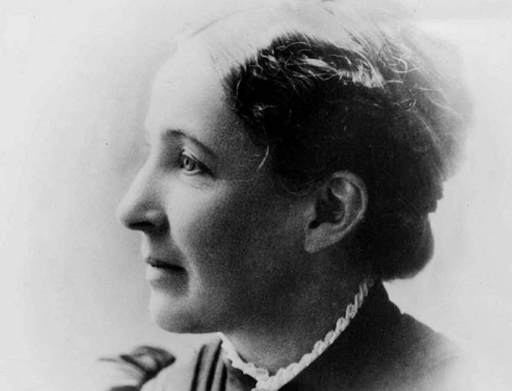You may or may not have read about the 2015 Israel election over the past three weeks. If you have, then you might have also read about how the Israeli-Palestinian conflict weaved into the elections.
If not, that’s fine: you’re the reason why I’m writing. There are two ways I can approach this matter: 1) I can write to you through the lens of the political implication of the two-state solution or 2) through the lens of human rights.
I choose to write to you through the lens of human rights because I think this approach might be easier to relate to without deep knowledge about the politics and history of the Israeli-Palestinian conflict.
The main purpose of this article is to resurface the Israeli-Palestinian conflict simply because over time this conflict has been overshadowed by other conflicts in the Middle East and because the concerns and sufferings of the Israelis and Palestinians continue beyond the headlines.
So why care about the Israeli-Palestinian conflict? Here’s why.
For starters Israel has been engaged in a low-intensity conflict with Palestine for decades, specifically with the occupation of the West Bank and the blockade of Gaza.
The occupation of the West Bank has been going on for almost 50 years and, despite U.S.-led negotiations and numerous unsuccessful attempts at the United Nations, the West Bank is still under occupation.
The Israeli settlements, illegal under international law, are still present and have increased rapidly under Netanyahu’s government.
Palestinians in the West Bank are being evicted and having their homes demolished. Nonviolent protestors are being arrested and shot at with tear gas, stun grenades and live rounds by Israel Defense Forces (IDF) soldiers.
Families are being separated regularly in night raids, and civilians suspected of protesting or throwing rocks are being sentenced at the Ofer Military Prison located in the West Bank.
It is not uncommon for children to be arrested, interrogated without a lawyer or a parent present, forced into a false confession and sentenced from up to a few months to a year. Not to mention that the Palestinians have their freedom of movement restricted and regulated by the IDF.
Frustrated by the unfulfilled promises of peace and a sovereign Palestinian state, the Palestinians joined the International Criminal Court (ICC) on April 1 in order to pursue charges of war-crimes committed in Palestine.
In response, Israel retaliated by withholding $130 million of the tax revenue that Israel collects on behalf of the already broke Palestinian Authority (PA).
The tax revenue that Israel withheld from Palestine contains approximately two-thirds of the PA’s annual budget. These funds are crucial to the running of the PA, including the payment of civil servants.
Israel recently announced that the funds will be released to the PA on the basis of humanitarian need and Israel’s national interest. As if there was not a humanitarian need before?
The withholding of tax revenues exacerbated the already existing humanitarian need. This just shows the control Israel has over the West Bank.
And Gaza? Being under siege on all sides, in addition to the tightly-controlled Egyptian border, Israel also controls the airspace and imposes a naval blockade.
Additionally, the Hamas who governed Gaza have undergone numerous wars with the IDF, the most recent being last summer’s 50-day war, “Operation Protective Edge.”
An independent fact-finding mission by Physicians for Human Rights reports that over the course of the 50 days war, approximately 2,200 Palestinians were killed, most of whom were civilians.
In addition, 70 percent of the population requires humanitarian aid, 18,000 homes destroyed and about 20,000 people are now living in public shelters. Reconstruction efforts have barely started due to the lack of funds from the international community and also due to the restriction on the flow of materials by the IDF.
So how does this connect to the 2015 Israeli election, and in particular, to Netanyahu’s win? It is simply the way Netanyahu chose to react when faced with a possible defeat in the election.
Netanyahu’s Likud were up against a strong Zionist Union led by Isaac Herzog and Tzipi Livni.
Facing a possible defeat in the election, Netanyahu made a rather shrewd and racist move by urging Israelis to come out and vote for the Likud party because “droves of Arabs” were voting for the newly formed Joint Arab List.
To make matters worse, Netanyahu definitively asserted that there would not be a two-state solution if he were to be reelected.
What this means is that the occupation of the West Bank will continue, Gaza will continue in its devastation with the high possibility of conflicts between the IDF and the Hamas, and Israeli Arabs will continue to be treated as second class citizens under Netanyahu’s government.
Now that there is a high level of certainty that Netanyahu will continue as prime minister, it seems that there will not be any action on the side of the Israelis to alleviate the sufferings of the Palestinians in the West Bank and the Gaza Strip unless there is enormous international pressure.
The responsibility for the situation goes beyond the State of Israel. The Hamas, the PA, and the United States using its veto at the UN can also be held responsible for the deteriorating situation.
Any step towards a peace process requires persistent coordination between all parties, a process which would take decades. The occupation of the West Bank and the blockade of Gaza would not be lifted unless security is ensured for the State of Israel.
The process towards a sovereign Palestinian state is a long and complicated process that requires coordination and compromise. Not all of us can dedicate ourselves to Middle Eastern issues.
But we share in each others’ humanity and we can empathize with each others happiness and sufferings. So maybe for us, the first step is to stand on the side of what is right for human integrity.
There are a myriad of ways we can do so, and writing to you is my first step. What’s your first step?




